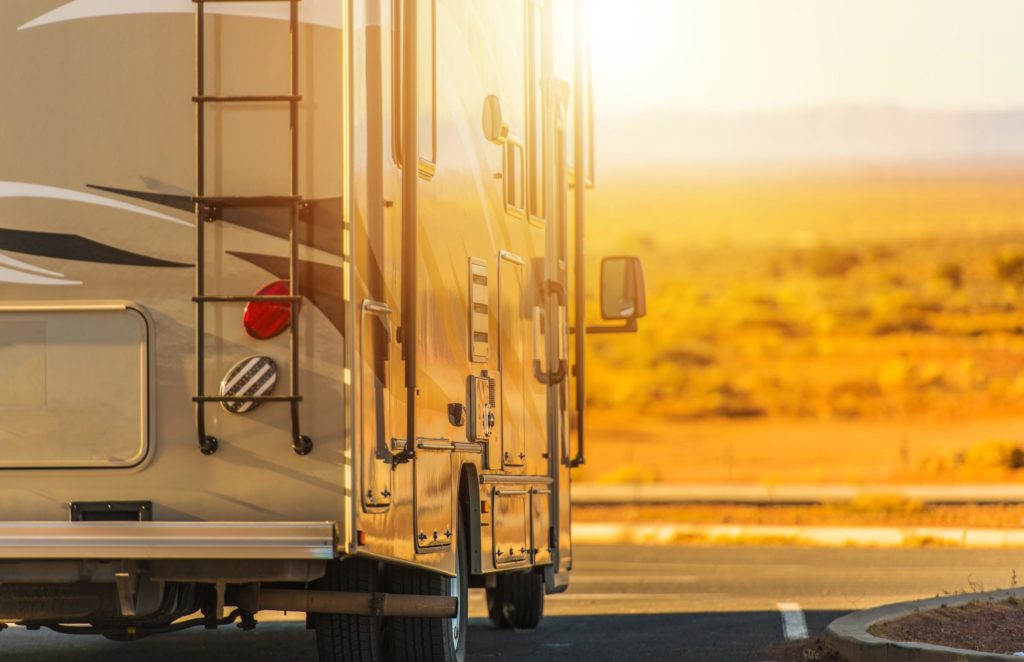RV Living: How to Adjust to RV Life
Sometimes you choose the RV life—sometimes it chooses you.
If the open road is calling and you’re considering trading in your home for a house on wheels, then a host of adventures await. (And RV living isn’t only for retirees and empty-nesters anymore; there are newlyweds and even families choosing to live life on the road for the sake of living a simpler life.)
However, what many people new to RV living don’t realize is that there is often a sharp learning curve. Whether it’s expensive repairs, knowing where to park, or challenges with new cities and new climates, you have to learn to expect the unexpected.
Here are some tips and tricks to help set you up for success with your new life on the road.
Plan Finances
One of the perks of the RV life is that it can cut out a lot of your regular bills and housing costs. Then again, one of the drawbacks is that it can also be expensive in many ways if you’re not careful. Consider an RV loan calculator to see what options there are.
Many people plan for life on the road during retirement, and plan accordingly for years in advance. If that’s the case, then you probably have a good nest egg setup and your biggest challenge will be make it last as long as you can. That means drafting a weekly, monthly, and yearly budget, and sticking to it.
Plan for all of your living expenses, which will include:
- Fuel and repair costs (changing the oil on an RV is a lot more expensive than on a regular car)
- RV Parks & campsite rental fees (typically around $35 a night)
- Food (you can save big by cooking your own meals right in your RV)
- Phone/internet (if you want to stay connected, so you’ll want a good internet data plan)
- Other bills like health insurance, life insurance, etc.
Will You Keep a Permanent Residence?
This is a personal decision. Are you planning to go back to your permanent home at some point, or are you going to live the rest of your life RV-style? Some people sell their home and use the equity to fund life on the road. Some choose to hold onto their property as an investment. Others keep their home-base to continue having all of their mail sent there. If you want to keep your home, you can always rent it out while you’re gone, generating income while you’re away.
Work
Of course, just because you’re living a nomadic lifestyle doesn’t mean you can’t hold down a steady job. There are plenty of opportunities to work remotely, as long as you have a laptop and reliable access to the internet. Telecommuting jobs and mobile banking make RV life accessible to more people than ever before.
You will need income to cover all of your regular costs with fuel, repairs, food, activities, etc. Most people choose to continue working at least part time for the purpose of income or to continue with professional development. Look into including a hotspot device through your wireless provider so you have access to a data signal when wifi isn’t available. And bring only the most necessary office supplies and equipment with you.
Downsizing and Simplifying
There’s no doubt that going from the square footage of a home to that of an RV will require substantial downsizing. But how do you know what you’ll need?
When living in your mobile mini-home, you’ll want only the barest of necessities. If you choose to keep your home, you can leave nearly everything there. Otherwise, it’s time for a yard sale! Plan to keep the rest of your belongings you want to keep but not bring with you in the RV, in a storage unit.
Seasoned RVers recommend taking a small RV trip in the beginning to narrow down exactly what you really need to pack for life on the road.
Which leads us to:
Start With a Mini-Trip
How do you know if living in an RV is going to be right for you if you don’t try it out first? Plan to go on a mini trip (2-4 weeks) before you commit fully to RV life. During this time you will learn the reality of how you will need to budget, pack, work, and how well your personal relationships can handle this new lifestyle. Some people find that all their downsizing wasn’t enough, and that all of the “must-haves” they packed were actually unnecessary.
If you’re looking to shorten that RV-life learning curve, then testing it out with a mini trip is your best bet.
Ease into the Transition
Some folks want to start living in an RV full time right when they retire. Other times, a major life change, such as a new telecommuting job, selling a home, or grown children moving away from home can push you into considering the RV lifestyle. This isn’t necessarily a bad thing, of course.
Fact of the matter is that major life changes are a shock to the system, and it takes time to adjust after they occur. So be sure you have sufficient time to adjust to any life changes before going full-time, pedal-to-the-metal RV-dweller.
If living in an RV and traveling full time is a dream for you, take these tips to heart and plan for for the adjustment that it may be. It’s a fulfilling opportunity to see and experience so many new things with the people who are closest to you. Happy travels!



